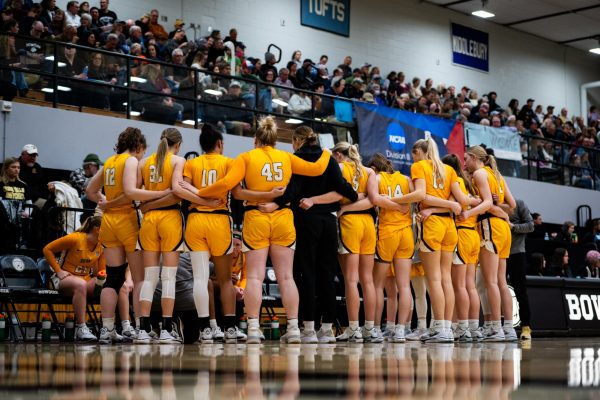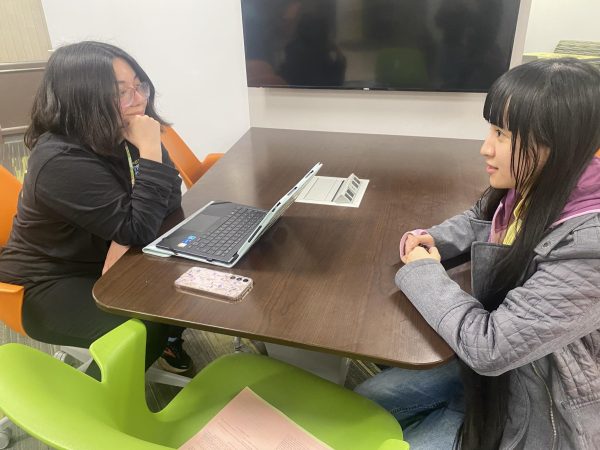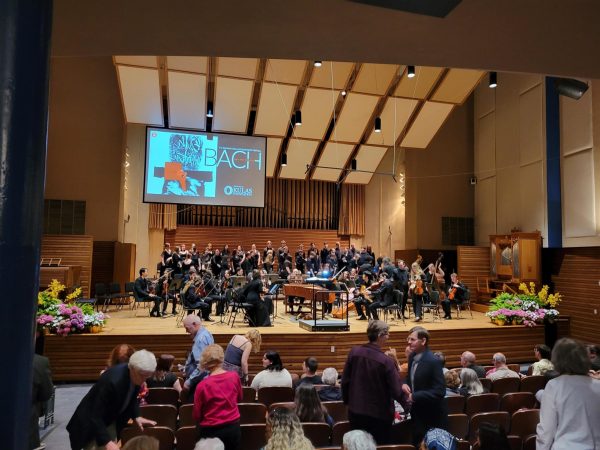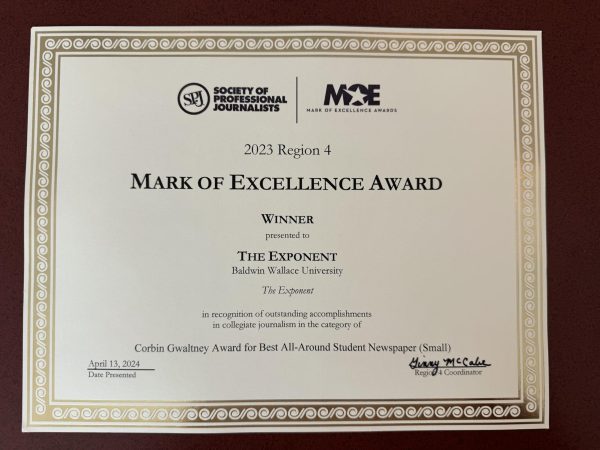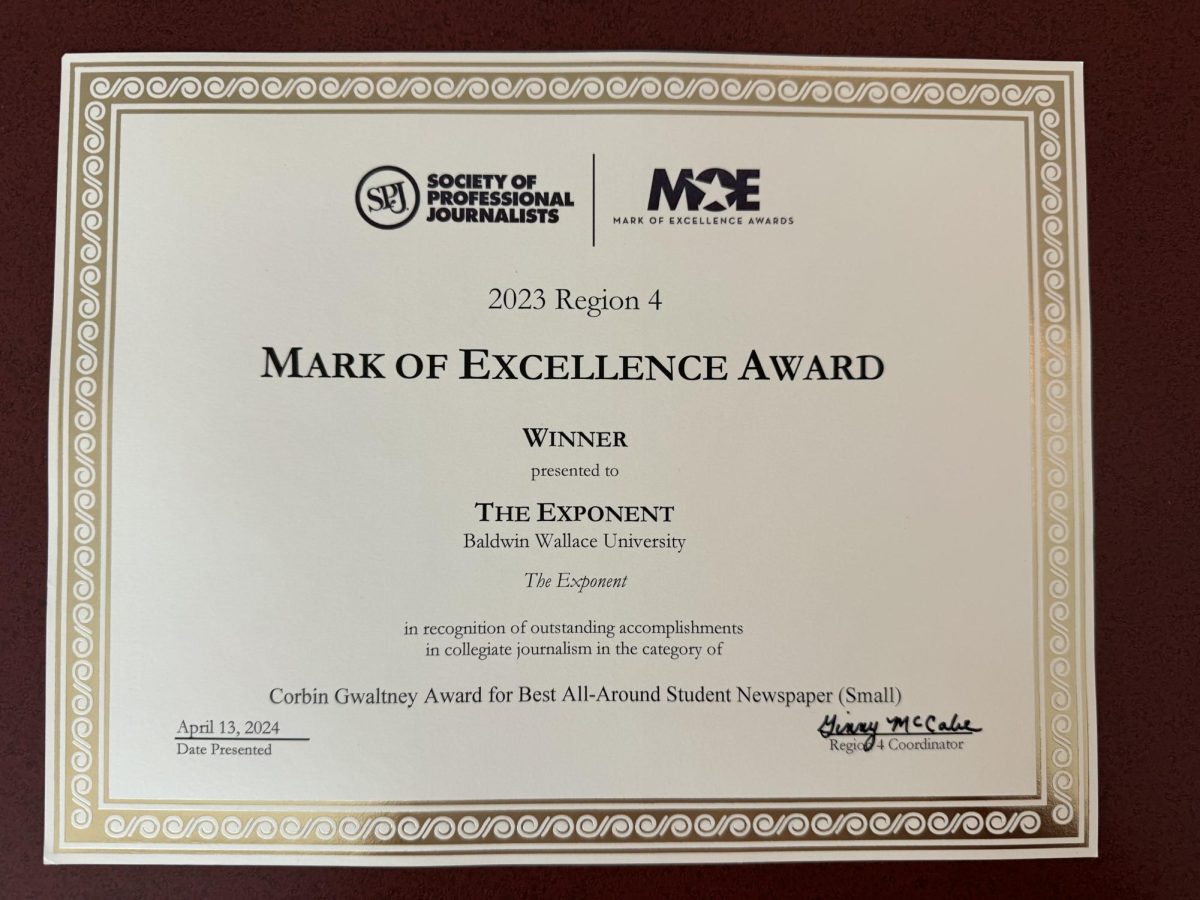Religion professor leads virtue-based workshops in Shanghai
The Religion Department at Baldwin Wallace doesn’t just limit itself to matters of the soul. Professor Alan Kolp and his co-author, Peter Rea, former business professor at Baldwin Wallace, are bringing scripture down to earth in order to improve multinational engineering firm Parker-Hannifin’s team effectiveness and profitability, starting in Shanghai.
Kolp traveled to Shanghai in order to lead virtue-based teamwork building workshops based off of his and Rea’s written work that explores the missing link between virtue and good business.
Most of Parker-Hannifin’s Asian subsidiaries were represented at the workshops; factory owners, team leaders, and other management staff from China, Japan, South Korea, and India were present at the workshops.
Teams met with Kolp in order to discuss the virtues and how they could be implemented in order to improve their productivity and their daily lives.
The workshops didn’t focus on any kind of specific religious doctrine that would have been foreign or hard to understand. Rather, Kolp has stated that the virtues are something universal to all cultures.
“It doesn’t matter what culture you’re from, Hinduism and Taoism have the concept of love. Every religion and culture have the virtues engrained in them; they’re universal. Even if you’re an atheist, you’ll still try to lead an ethical, virtuous life.”
In addition to being a boon in a religious sense, the virtues have their uses in a business setting.
“One of the virtues we discussed was trust. If there is a high level of trust [between us], we have a good relationship and are much better as a team. I know you aren’t going to cut corners, I know you’re going to do a good job,” Kolp said.
The Parker-Hannifin employees were very receptive to the training.
“They learned a lot,” Kolp said, “but the important part is that they implement what they’ve learned… The virtues won’t just help them in business, but it will help them become better people, better fathers, better community
members.”
Trust isn’t the only virtue that was discussed at the conference, nor is it the only one adopted by Parker-Hannifin. Virtue has become inseparable from the company’s ethos, and their adoption of them is outlined in a short 2013 manifesto, “Winning with Integrity.” The dichotomy be-tween business and religion seems stark, but has proved to be highly valued by Parker-Hannifin.
“[Parker-Hannifin] wanted us to do what we had written in our books. So, they created a Vice President level position, Vice President of Integrity and Ethics, and hired Peter to implement what we had written into the company,” Kolp said.
Despite the impact that Kolp and Rea have had with their virtue-based books and leadership programs, the foundation upon which it is based, religion, has been suffering from dwindling interest. Mirroring the national downturn in religious affiliation and participation, enrollment at in the religion program at Baldwin Wallace has been falling as well.
Professor Ellen Posman, chair of the religion department, has elaborated on the department’s struggles, as well as the steps being taken in an attempt to improve its standing.
“We [the religion department faculty] have been meeting in order to find a way to change the curriculum in order to appeal to more students… The purpose of the religion department is to bridge the gap between the religious and the secular, and in some cases, to show that the gap doesn’t exist,” Posman said.
Whether or not the religion department sees an increase in enrollment after the curriculum changes has yet to be seen. However, Kolp remains optimistic about the usefulness of religion in an increasingly secular world.
“Most people see college as a strictly vocational endeavor, so the humanities have taken a hit across the board, not just religion,” Kolp said, “but regardless, I think students should also try to see the value in the humanities… I first got the idea for the book when I sat down with Peter for coffee; we discussed the things we were interested in and eventually decided it’d be fun to try and write something. Now, he’s working at Parker-Hannifin and implementing
the values we wrote about into the company.”
Following the success of the leadership training program in Shanghai, Parker-Hannifin also plans to run similar programs in both the Cleveland area and England in the coming months.
The Exponent is looking for financial contributions to support our staff and our newsroom in producing high-quality, well-reported and accurate journalism. Thank you for taking the time to consider supporting our student journalists.


